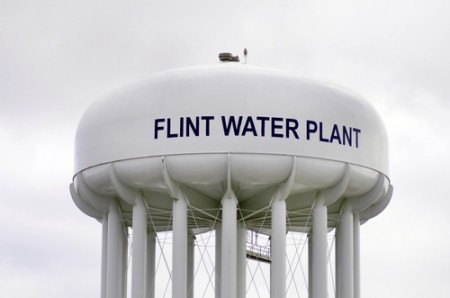All charges dropped in Flint water case with promise of continuing investigation

Prosecutors in Michigan have dropped all pending criminal charges against officials accused in connection with the leaching of lead into the water supply in Flint.
Prosecutors said they dropped the charges against eight defendants because of problems with the investigation under the previous attorney general, Bill Schuette, report the Detroit Free Press (in stories here and here), Mlive.com, the New York Times and the Washington Post.
A new expanded probe is being launched, according to a statement, which cited “grave concerns about the investigative approach and legal theories” in the cases. The charges were dropped without prejudice, meaning they can be refiled. New charges also can be added, according to the statement by the prosecutors handling the cases, Solicitor General Fadwa Hammoud and Wayne County prosecutor Kym Worthy.
A chief concern is that some evidence was not pursued because Schuette’s special prosecutor had wrongly allowed private law firms representing former Gov. Rick Snyder and state agencies to help decide what information would be turned over to law enforcement, the statement said.
Water officials had switched Flint’s water supply in April 2014 from Lake Huron to the Flint River to save money, but they didn’t treat the corrosive water to prevent lead from leaching into it. The charges stemmed from those decisions and the death of an elderly man from Legionnaires’ disease said to be linked to the water supply.
The new legal team has executed a series of search warrants, and it now has millions of documents and hundreds of new electronic devices, “significantly expanding the scope of our investigation,” the statement said. The lawyers have “already identified additional individuals of interest.”
“We cannot provide the citizens of Flint the investigation they rightly deserve by continuing to build on a flawed foundation,” the statement said. “Dismissing these cases allows us to move forward according to the non-negotiable requirements of a thorough, methodical and ethical investigation.”
Schuette said in a statement that the Flint water probe was “staffed and conducted with the highest level of professionalism and expertise.” His special prosecutor, Todd Flood, released a statement to the Washington Post that said his focus was always justice for the people of Flint. “I am confident our efforts on behalf of the thousands of victims met the highest professional and ethical standards,” he said.
Seven people charged in the case already had pleaded no contest to misdemeanors and had been expected to cooperate. Their pleas were not yet formally accepted by a judge.
Charges against eight other state and city officials were dropped, including an involuntary manslaughter charge against Nick Lyon, the former director of the state health department. A judge appeared ready to toss that charge “if prosecutors hadn’t beaten him to the punch by folding their case,” according to the Detroit Free Press.
See also:
ABAJournal.com: “The Flint Water Crisis: A Timeline”
ABA Journal: “Who’s to blame for poisoning of Flint’s water?”
ABA Journal: “Lead litigation beyond Flint”
ABAJournal.com: “In Flint water crisis, could involuntary manslaughter charges actually lead to prison time?”



